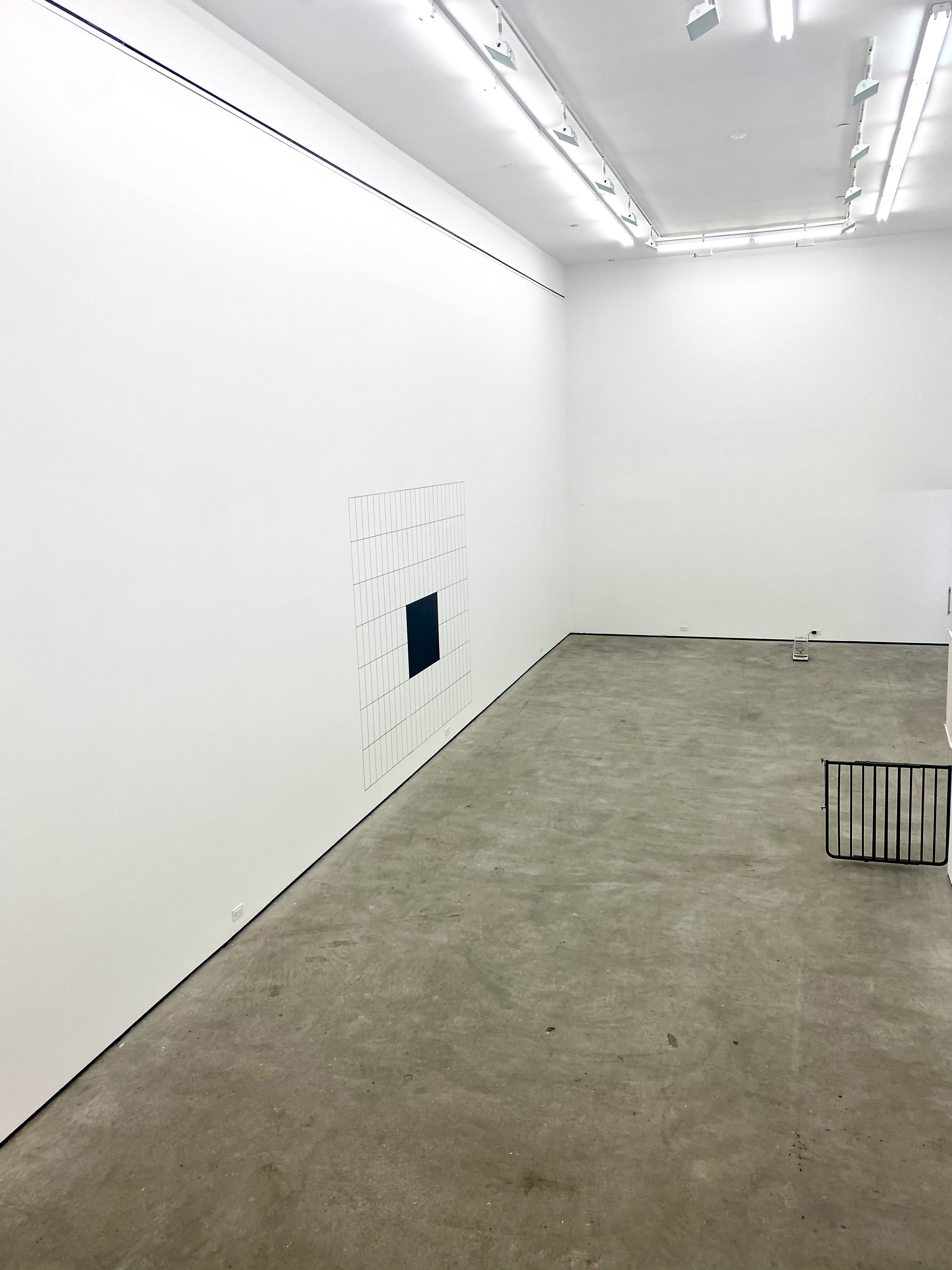Like Someone Blows in Your Ear
Ghislaine Leung at Maxwell Graham
September 8 – October 15, 2022
Ghislaine Leung’s show “Balances” first struck me as dealing with, or even in, aggression. By that I mean the artist identifies pressures and constraints she is exposed to in her role as caregiver and artist and projects their structure outward, away from herself — toward the visitor, the gallery employees, and visually throughout the space, steaming up. As in “the show is fuming” but cold. I’m calling it aggression — and not just laying bare the structures of production: The conditions of art production as a caregiver in late capitalism in an expensive place like New York are pretty brutal unless your resources are tremendous. It’s an aggressive system. It’s this experience that was being thrown back at the viewer, gallery employees, and the space.

In Moyra Davey’s Mother Reader, Jane Lazare recounts a contrasting scene. Several mothers, at least some of them writers, sit in an overheated living room in the 1970s. They discuss infanticide from a feminist perspective. And all agree that it is highly relatable. These women met through a flyer that read “Are you sick of being somebody’s mother?” Their problem is time. They can’t do what they need to give meaning to their lives because they are watching the kids. Neither their partners nor society gives them much support. In their shared fantasy of getting rid of their kids, the hardship society puts on them is channeled back into the caregiver relationship. In Leung’s case, it’s supposed to go out into the (art)world.

I think it’s important that the pressure is moving into the professional sphere instead of being contained in the “private”/domestic. I like that it reads aggressive because that’s how the structures operate that she points to. I like the idea of hitting the art world instead of your kids. I also thought the fountain work was successful. It was less literal than the other works; we were not met with the exact objects of a baby world but with their function in a new form: It was moist and warm in the room, yes, a little womb-like or stuck between someone’s legs or breasts. The sound was weird, soothing, and made you have to pee, in an undefined way, like peeing in an ocean. The effect of the fountain was eroding your physical boundaries, while visually the work felt pleasantly off. It was too large — child-perspective play — but also pompous in an understated authoritarian way, a meditation room in a modern day Mussolini city. Are we allowed to relax? Do we have to? Is relaxation labor? Good work.
But while I sympathize with Leung’s way to point toward a problem, the solution she ends up offering feels misguided. Not only is the major part of the aggression offloaded onto the gallery’s employees, who are surveyed via camera and seemingly do a lot of extra labor. Moreover, after publicly channeling the privately accumulated anger onto employees, it is precisely owners and collectors who get to wash their hands in innocence. Like in the score Travel & Accommodation (2022), we get to admire the donation of Leung’s travel budget, $2,242, on behalf of Maxwell Graham to a local charity supporting care work. As a score, it’s a work about repetition. The message is clear: Let’s all follow the good example of the “generous gift,” as the displayed invoice from the organization A Better Balance reads; let’s be good individuals who donate money to NGOs. It is tiresome to point out that most of the surplus invested in private philanthropy is money not paid in taxes, that the NGOification (and thus privatization) of the welfare state has been precisely one of the central pillars of the neoliberal revolution that makes care work both underpaid and too expensive. Obviously I am not asking Leung to fix the system. Actually, the best thing might be if she would resist offering cheap solutions.